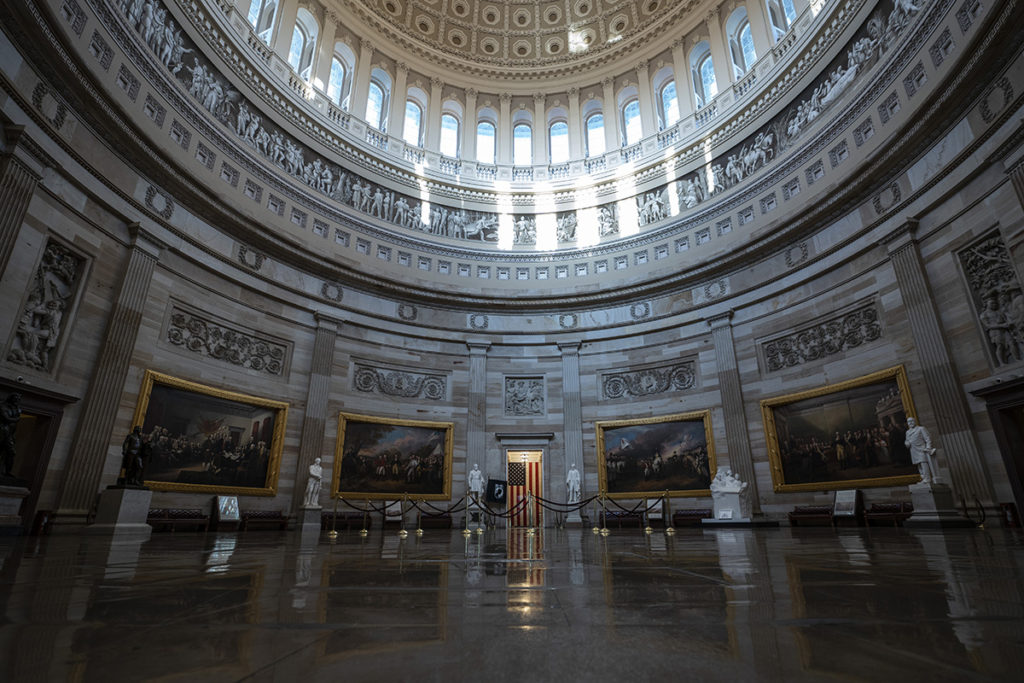
NRECA is asking Congress to provide federal aid to the nation’s 900-plus electric cooperatives, some of which may suffer from budget shortfalls as their consumer-members struggle to pay their electric bills during the COVID-19 pandemic.
Lawmakers are expected to consider another sweeping relief bill later this spring as a follow-up to the $2 trillion CARES Act they passed in March. That legislation contained several provisions sought by NRECA, including an additional $900 million for the Low-Income Home Energy Assistance Program, which helps some low-income and moderate-income consumers pay their utility bills. But not all struggling families qualify for that aid.
“Many states have mandated moratoriums on utility disconnections and some members of Congress have proposed a similar federal moratorium,” NRECA CEO Jim Matheson wrote in a letter to congressional leaders. “At the same time, electric bill nonpayment is increasing nationwide and electric load from commercial and industrial users has dramatically decreased.”
Matheson reminded lawmakers that co-ops are not-for-profit, have no shareholders and return excess revenue to their consumer-members. Co-ops returned $1.2 billion to their members in 2018 alone.
“Because of this structure and the desire to keep energy costs as low as possible, some electric co-ops have limited reserve margins to sustain high rates of nonpayment,” he wrote. “As a result of nonpayments and load falloff resulting from economic hardship, some not-for-profit electric cooperatives are facing significant operational shortfalls. Without federal assistance, co-ops may face severe financial distress.”
NRECA is also asking lawmakers to include federal loan, broadband and disaster relief provisions in the next bill, including measures to:
- Direct the U.S. Department of Agriculture’s Rural Utilities Service program to help co-ops save money immediately by taking advantage of historically low interest rates to reprice or refinance RUS debt without penalties for borrowers. Co-ops hold more than $40 billion in RUS electric program loans.
- Increase the amount of lending available under the RUS Guaranteed Underwriter Program. It provides guarantees for loans made to co-ops by private cooperative banks such as the National Rural Utilities Cooperative Finance Corp. (CFC) and CoBank.
- Provide vouchers for needy families and small businesses to pay their internet service providers. This would allow broadband providers, including co-ops, to keep customers connected and provide new connections. Service is especially crucial during the pandemic for online school assignments, teleworking and telemedicine.
- Invest more in existing programs such as the RUS ReConnect Broadband Loan and Grant Program to bring high-speed internet service to rural areas.
- Direct the Federal Emergency Management Agency to reimburse co-ops for past disasters. Some Florida co-ops, for example, still have not received FEMA reimbursements for rebuilding their systems after Hurricane Michael in 2018.
The letter was sent to Senate Majority Leader Mitch McConnell, R-Ky., Senate Minority Leader Chuck Schumer, D-N.Y., House Speaker Nancy Pelosi, D-Calif., and House Minority Leader Kevin McCarthy, R-Calif.
Erin Kelly is a staff writer at NRECA.
Read More on the electric co-op response to the COVID-19 Pandemic
See NRECA’s COVID-19 hub on cooperative.com for key resources for co-ops, including guidance on business continuity planning and communication, as well as event schedule changes.